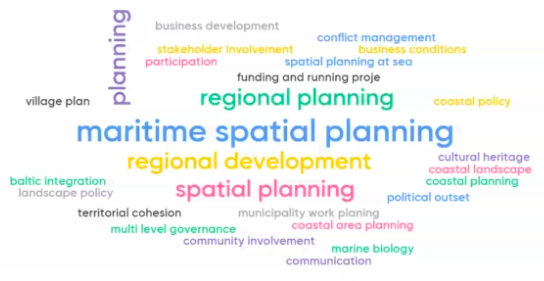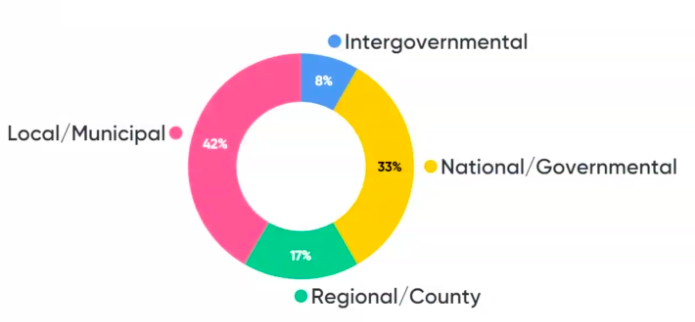1st International Expert Panel
During the challenging times worldwide caused by COVID-19 pandemic Land-Sea-Act project partners switched from in-person meetings to remote working mode on-line. During 3rd partner meeting on March 25th partners organized project’s first International Expert Panel.
Aim of the first panel was to introduce invited experts with the concept of the International expert Panel established in the frame of the Land-Sea-Act project as well as to get to know each other – project partnership, their expertise and members of the external expert panel, their representativeness and experience in the field.
Broader idea behind the International Expert Panel is to receive an input on Multi-level Governance Agenda for Blue Growth and Spatial Planning and to debate on the issues related to structures and processes of the multi-level governance approaches to generate inter-sectoral collaborations in marine and coastal planning in a way to ensure that land-sea interactions are considered.
Working methods of the Panel:
Three one day meetings including exploratory visits to the project areas & written communications, comments on the developed drafts.
Outcome of the Panel:
A policy brief with key messages and recommendations to be considered for drafting the Multi-level Governance Agenda on BG and Spatial Planning in Baltic sea region.
Participants of the Panel:
The international expert panel will consists of 10-15 external experts invited by Land-Sea-Act project partners as well as key experts from the project’s consortium. Experts identified should ensure a balanced representation of relevant areas of expertise and spatial planning level.


Field of expertise/competence and planning/governance scale mentioned by experts during the panel (screenshots from (menti.com)
In the beginning of the first panel, the Land-Sea Act project partners welcomed ten external experts having competencies and expertise in fields related to maritime spatial planning, development of coastal municipalities, small harbors and entrepreneurship, cultural heritage, tourism, governance assessments. The external experts represented different countries, institutions and/or governance levels: Regional Council of Satakunta (Finland), Finnish Ministry of the Environment, Haljala municipality (Estonia), Carnikava municipality (Latvia), Polish association of Local governments ZMIGM, Holbaek municipality (Denmark), Tjörns municipality (Sweden), Polish Academy of Sciences Institute of Oceanology (IOPAN), ICES, Working Group for Marine Planning and Coastal Zone Management,VASAB Secretariat.
During first discussion, moderated by Land-Sea-Act partner BEF Latvia, experts gave their first proposals about the focus and scope of Multi-level Governance agenda. Some important questions were raised: what are obstacles to Blue Growth today and in near future? Are these obstacles entwinned with communication, capacity and/or knowledge? Are there some more crucial topics than others and what are real-time trends in different sectors (SME, tourism) including unprecedent situation with the measures countries take to battle pandemic? What is required to collaborate and create a solution among different levels (local-regional, local-national)? What important links between traditional and new marine and coastal uses should be studied or created and how maritime spatial planning could enhance that?
These and more other questions and ideas already provided substantial input for ongoing work in Land-Sea-Act cases and work on Multi-level Governance Agenda. We will see what setting (co-located or remote) of collaboration with the experts will be possible during this year, but surely it will be based on openness and knowledge sharing, thus much appreciated from the Land-Sea-Act project partners.
Prepared by Kristīna Veidemane (BEF Latvia) and Margarita Vološina (Ministry of Environmental Protection and Regional Development of Latvia) /April 2020/

